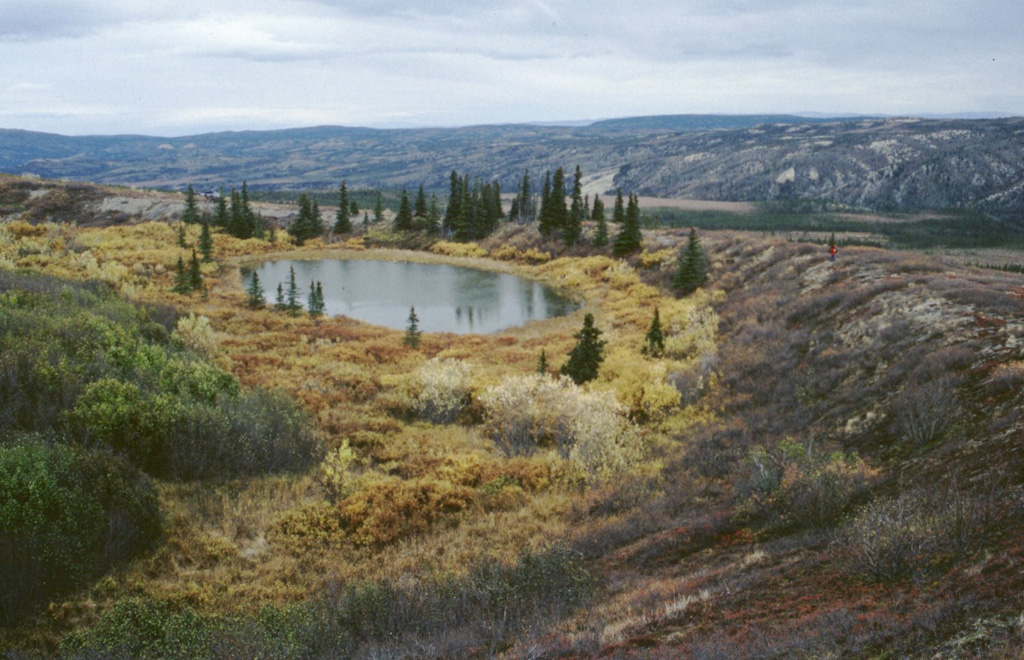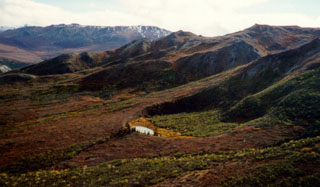Global Volcanism Program | Image GVP-11117

Moderate explosive eruptions radiocarbon dated to about 3,000 years ago formed two tuff rings in the central Alaska Range. A 300-m-wide ejecta blanket can be traced 1.6 km from the larger vent, seen in this photo. Ejecta on the crater rim consists of about 80% country rock fragments, with only 20% juvenile basaltic fragments. A geologist in a red jacket (right) and a helicopter (beyond the trees on the left side of the lake) on the crater rim, provide scale.
Photo by Chris Nye (Alaska Division of Geological & Geophysical Surveys, Alaska Volcano Observatory).
![]() This image is made available as a Public Domain Work, but proper attribution is appreciated.
This image is made available as a Public Domain Work, but proper attribution is appreciated.
Keywords: tuff ring | crater | field work | volcanologist

Buzzard Creek
